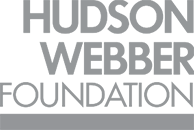Built Environment
Mission Areas
The physical spaces we occupy — our housing, workplaces, public spaces, parks, main streets, community facilities, and more — have a profound impact on our quality of life. Everything that is built contributes to the identity and speaks to the aspirations of Detroiters. The Hudson-Webber Foundation invests in exceptional buildings, housing, parks, and streetscapes, and encourages and supports practices that promote inclusivity and sustainability, and that reflect the authentic identity of Detroit.
Grant Highlights
Motown Historical Museum was awarded a $500,000 grant, to renovate and expand the Motown Museum facility.
Invest Detroit’s Strategic Neighborhood Fund was awarded a $1 million grant to invest in real estate development and public infrastructure in the Southwest, West Village and Livernois-McNichols Corridor neighborhoods.
The Detroit Riverfront Conservancy was awarded a $2,000,0000 grant to support operations, capital expansion and enhancement of park infrastructure.
Allied Media was awarded $250,000 to support renovation of the LOVE Building as a local-national hub for social justice integrating community connectivity with restorative and universal design principles
